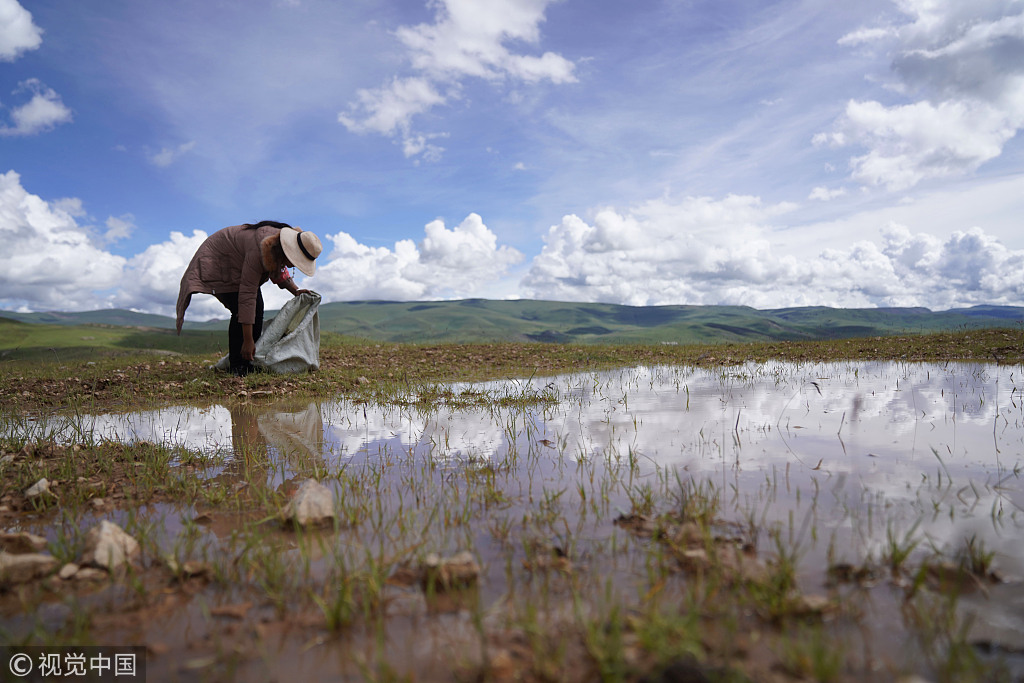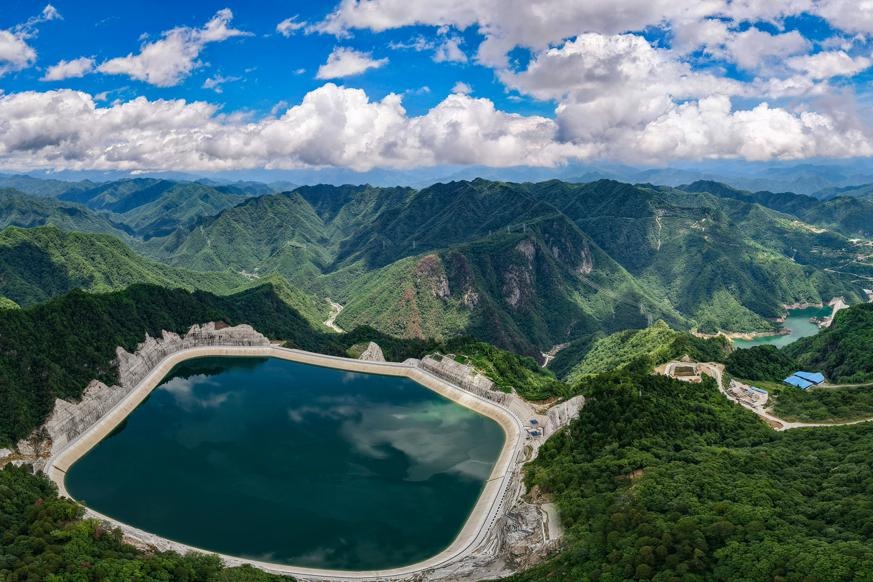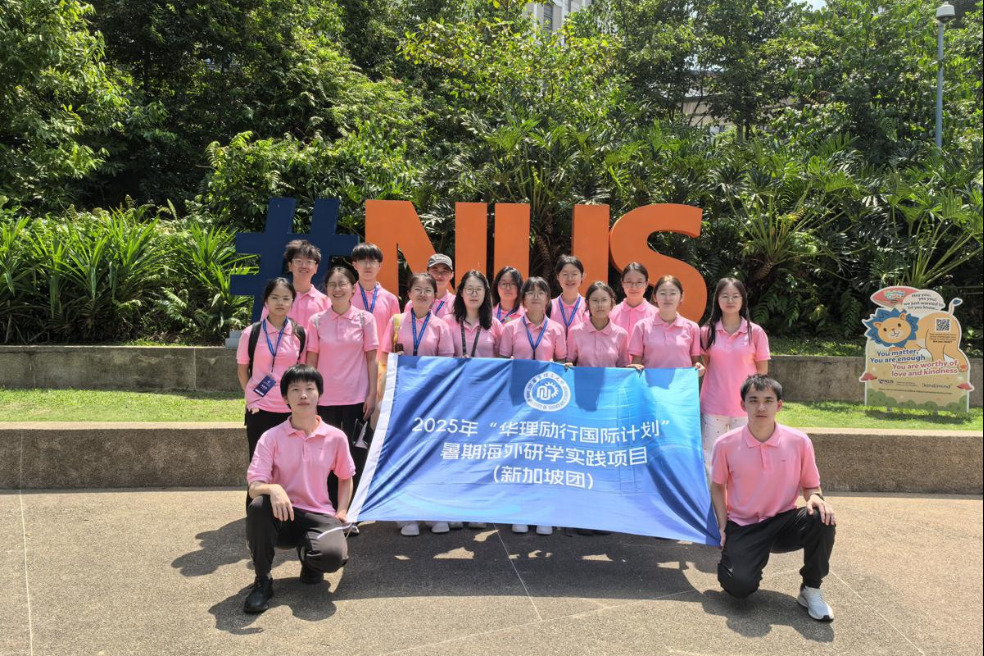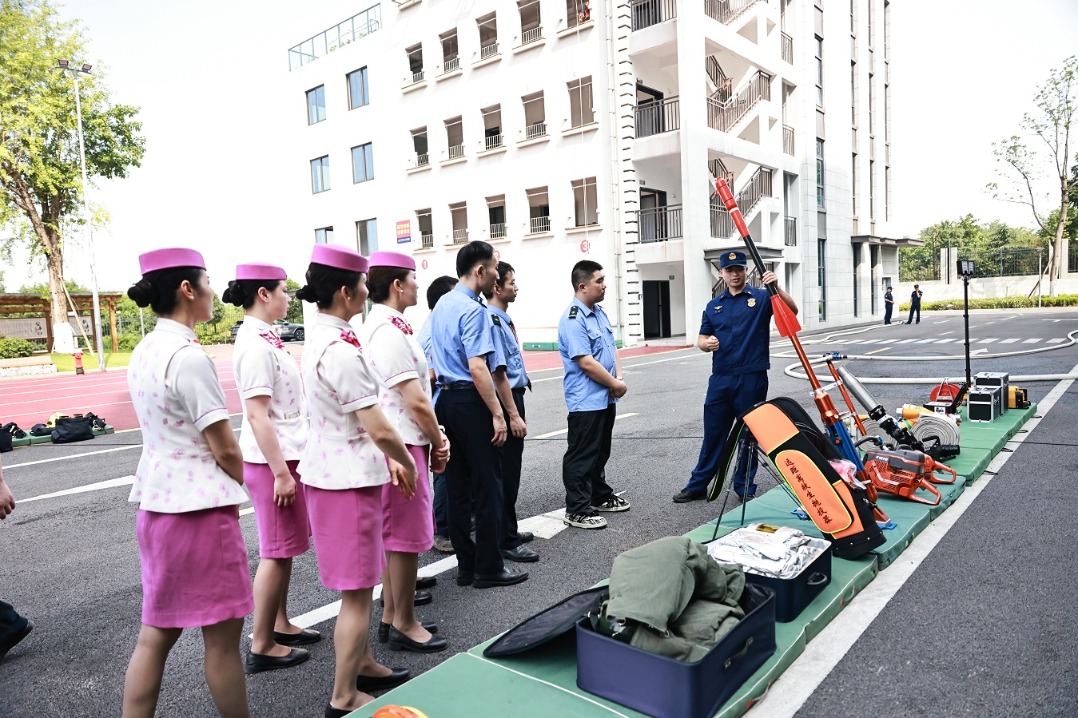Monitoring ramped up on chemicals


Better management to reduce impact of substances on environment, health
In a move to beef up the management of emerging pollutants, which have long-lasting environmental impacts and health hazards, China has introduced a dedicated guideline, vowing to ramp up monitoring and step up import and export management.
China, the world's largest chemical producer, will have screened all chemical substances with high production and consumption for their environmental risks by the end of 2025, according to the document, which was unveiled by the State Council, the country's Cabinet, on Wednesday.
Regarding toxic and hazardous chemicals, the country aims to see an institutional system and governance mechanism for them established and gradually improved by that time, it said.
Emerging pollutants, or contaminants of emerging concern, can refer to many kinds of chemicals and compounds such as ingredients of medicines, agricultural products and household cleaning products.
Despite more research being needed, it has been widely acknowledged that these emerging pollutants are increasingly becoming a hazard. With a detrimental effect on aquatic species such as fish, they can accumulate up the food chain, posing a risk to other species when they eat contaminated fish.
With 210,000 chemical-producing entities, China outpaces all other nations in chemical production. Producing over 2,800 varieties of chemicals, the industry's output value accounted for 13.8 percent of the country's GDP in 2018, according to the Ministry of Emergency Management in 2020.
The document released on Wednesday includes 19 measures, including the establishment of a special monitoring network.
On the basis of existing monitoring facilities, the country will roll out pilot programs on monitoring emerging pollutants in key regions, industries and industrial parks, it said. A survey and monitoring system for such pollutants will be preliminarily established in less than three years.
A list of key emerging pollutants for risk control will be drafted and updated in a dynamic manner. All those pollutants on the list will be either banned or restricted in production, processing, import and export.
The restriction on the content of such key pollutants will be incorporated into national compulsory standards for toys and students' supplies, according to the document.
It said that by enhancing environmental impact assessments, the introduction of projects concerning emerging pollutants will be subject to more stringent restrictions.
The production and consumption of pesticides and antibiotics are also among the major concerns identified in the document, which said the assessment of environmental hazards from the two types of products will be intensified.
All highly toxic pesticides that can bioaccumulate and have long-lasting impacts will fall under even more rigid control. The existing ones will be reassessed before the end of 2030.
New antibiotics for animal use will be assessed when they are registered, it said. All antibiotics will only be available through prescription in drugstores.
According to Wang Jinnan, head of the Chinese Academy of Environmental Planning, about 180,000 metric tons of antibiotics are consumed annually in China, roughly half the world's total.
"There are now about 45,000 varieties of chemical substances in China. The number is still rising with almost 1,000 new ones added every year," he said in an interview late last year, adding that environmental emissions may occur throughout their life cycle from production to disposal.
With potential risks to the environment and health, emerging pollutants have been major hindering factors for continuous improvement in the quality of air, water and soil.
Despite some progress controlling emerging pollutants, it's still urgent to enhance governance, he said.
"The country started emerging pollutants management comparatively late. The work is still in its development stage and has many weak links to address," he said.
The country, for example, still lacks long-term mechanisms and systematic planning for the governance of emerging pollutants, he said. A systematic management system that covers hazard identification, survey and monitoring, environmental risk assessment and control has yet to be established.
- 2025 International Congress of Basic Science kicks off in Beijing
- Scorching week forecast for various parts of country
- Young filmmakers' project paints multidimensional portrait of China
- Rare 1938 Guangzhou bombing photos to debut in August
- Power station solves renewable energy intermittency
- China appoints senior official for Hong Kong, Macao affairs





































